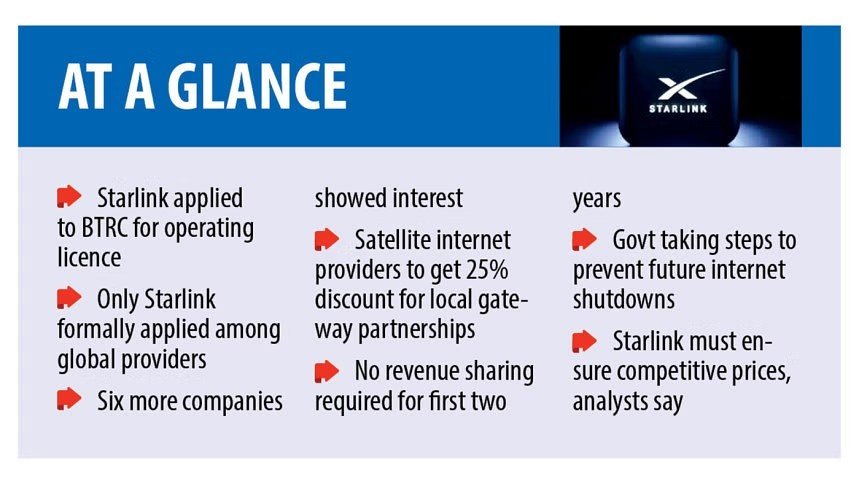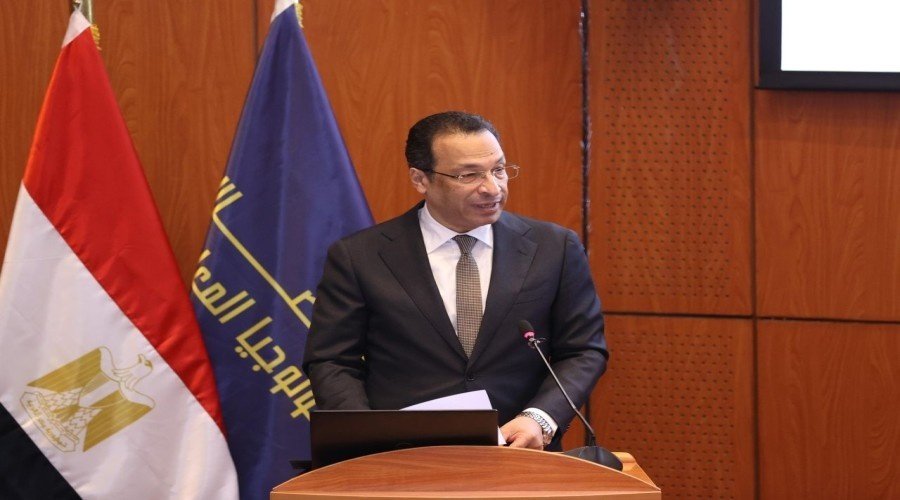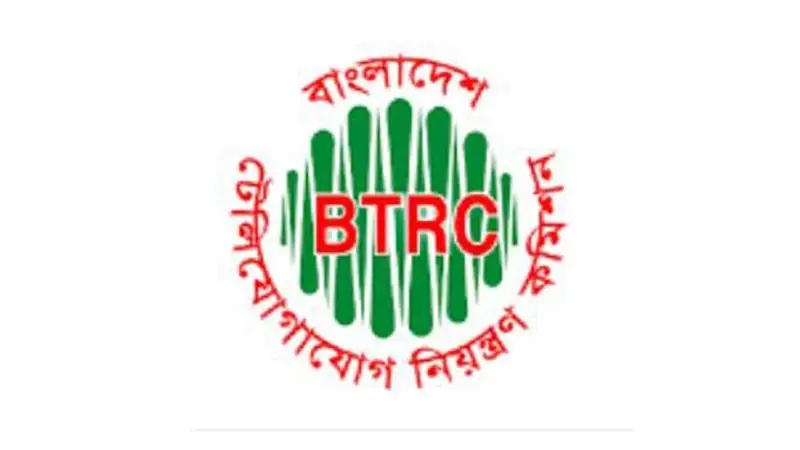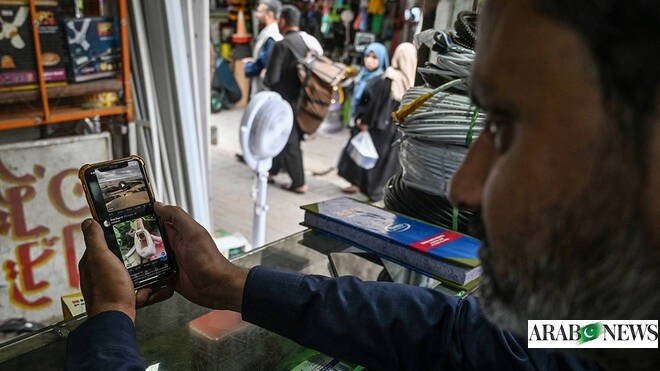Starlink has formally applied to the Bangladesh Telecommunication Regulatory Commission (BTRC) for a license to operate in the country, marking a major step toward launching satellite-based internet services in Bangladesh. The application was submitted last week, according to BTRC Chairman Maj Gen Md Emdad Ul Bari, who confirmed that due process would be followed in awarding the license.
Earlier, on March 29, the U.S.-based satellite internet provider received approval from the Bangladesh Investment Development Authority (BIDA) to start operations in the country. The final requirement for Starlink to begin its services is regulatory approval from the BTRC.
Once approved, Starlink will become the first company to receive a license under Bangladesh’s newly introduced Non-Geostationary Orbit (NGSO) guidelines, established on March 25. Under the new policy, the application and processing fee is set at Tk 5 lakh, with a license acquisition fee of $10,000 and an annual fee of $30,000. Additionally, an annual station/terminal fee of $1 per terminal will be applied, although terminals used exclusively for Internet of Things (IoT) services are exempt from charges.
The policy also includes incentives, offering a 25% reduction in various fees for companies that connect their gateway through the government-owned International Internet Gateway (IIG) or form partnerships with Bangladeshi satellite companies. Starting from the third year, licensees will need to share 3% of their gross revenue, with the share increasing to 5.5% from the sixth year onward.
Besides the NGSO license, Starlink must also acquire a separate Radio Communications Apparatus Licence to access the necessary spectrum for non-geostationary orbit satellite services. In March, Chief Adviser Muhammad Yunus directed authorities to ensure Starlink’s commercial launch within 90 days.
BTRC Chairman Bari also noted that around six global satellite providers have expressed interest in offering services in Bangladesh. However, Starlink is the only company to have officially submitted an application. The company has been attempting to enter the Bangladeshi market since 2021.
In April 2024, BTRC approved the formation of a committee to create guidelines for satellite-based internet services. These guidelines were finalized in October 2024, requiring service providers to route internet traffic through local gateways and connect to an IIG for data transmission. This provision allows the government to suspend internet access if necessary, though the government is actively working to prevent future internet shutdowns.
Faiz Ahmad Taiyeb, Special Assistant to the Chief Adviser at the Ministry of Posts, Telecommunications, and IT, emphasized that the interim government does not intend to shut down the internet in the future. He highlighted the government’s efforts to secure internet access as a citizen’s right, including the upcoming Cyber Security Ordinance and changes to telecom laws to eliminate the scope for shutdowns.
Telecom policy analyst Mustafa Mahmud Hussain commented that Starlink’s entry is a significant step toward improving connectivity in Bangladesh. However, pricing will be a key factor for success in a market where local broadband services are relatively affordable. Hussain also noted that Bangladesh’s weather conditions, including frequent cloud cover and long monsoon seasons, could pose challenges for ensuring consistent service quality. To succeed, Starlink must ensure strong performance and reliability, particularly during rainy months.















